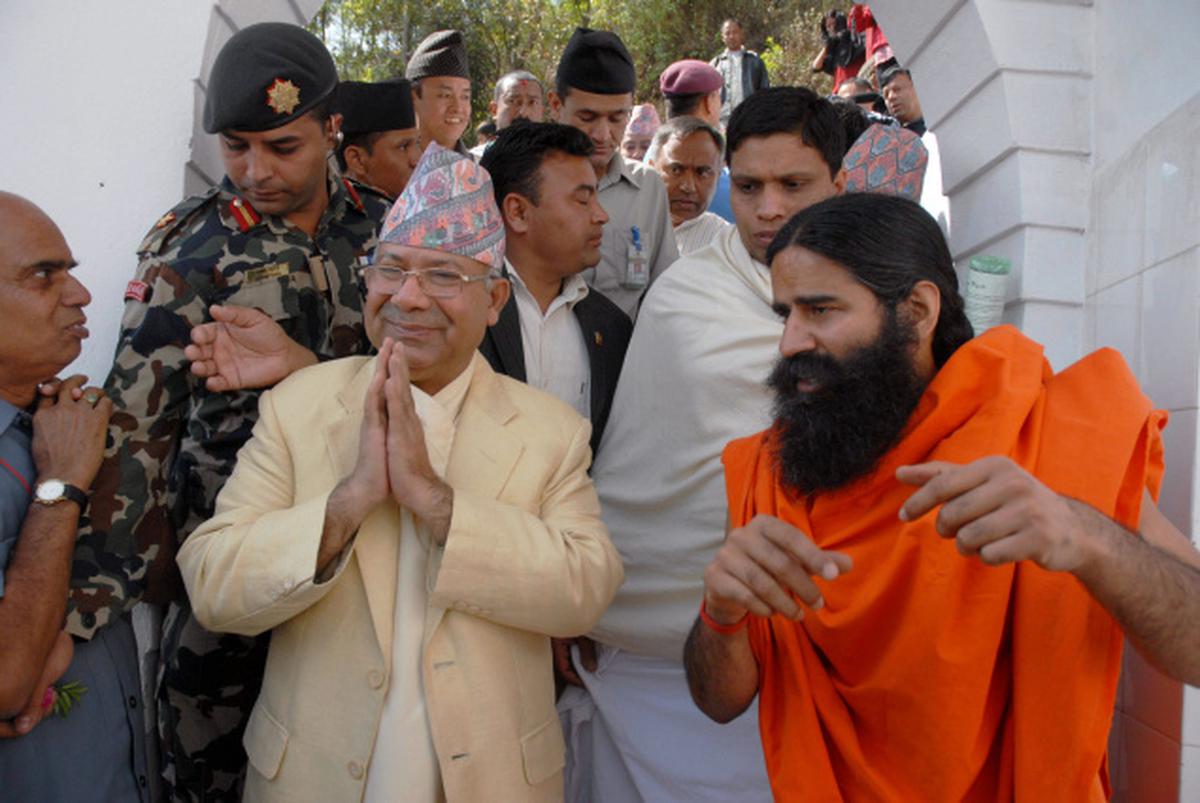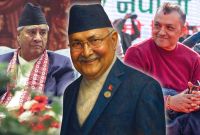China Visit, Then Charges: Is a Communist Crackdown Underway in Nepal?

KATHMANDU — Former Prime Minister Madhav Kumar Nepal has been charged with corruption over a controversial land deal involving Patanjali Yogpeeth Nepal, just days after former President Bidhya Devi Bhandari returned from a high-profile visit to China. The timing has raised eyebrows within Nepal’s political circles, intensifying suspicions of a broader geopolitical and ideological push unfolding behind the scenes.
The Commission for the Investigation of Abuse of Authority (CIAA) filed a charge sheet on Thursday accusing Madhav Nepal of unlawfully enabling Indian guru Baba Ramdev’s company to acquire more land than legally permitted. The land, situated in Kavre district, was intended for herbal cultivation, processing, and a hospital, but parts of it were later swapped or sold at inflated prices, allegedly causing financial loss to the state.
Madhav Nepal, who served as Prime Minister from 2009 to 2011 and now leads the CPN (Unified Socialist), firmly denies the charges. “I have not done anything illegal nor indulged in any corruption,” he said, labeling the prosecution a political vendetta.
The CIAA is demanding a fine of 185.85 million Nepali rupees (about $1.35 million) and has recommended a jail sentence of up to 17 years if found guilty. A total of 92 others, including former ministers and civil servants, are also named in the case—some of whom are already deceased.
Meanwhile, the scandal is unfolding amid renewed conversations about unifying Nepal’s fractured communist forces. With increasing legal and political pressure on smaller leftist factions like the CPN (Unified Socialist) and the Netra Bikram Chand ‘Biplav’-led group, high-level discussions are reportedly underway for a possible realignment with major players like the CPN (Maoist Centre). Analysts say the looming threat of legal actions has accelerated talks of communist unification as a defensive strategy.
Adding further fuel to the fire, Agni Sapkota—former Speaker and a central figure in the Maoist Centre—has also come under legal scrutiny. He is facing court proceedings in a separate case tied to past human rights abuses and political violence during the insurgency era, making the leftist bloc increasingly vulnerable to state and legal backlash.
While Patanjali Yogpeeth continues to insist that its land purchases were conducted legally, critics view the entire episode as part of a broader game—possibly influenced by cross-border political interests, timing, and power calculations following Bhandari’s Beijing visit.
As Nepal braces for a politically charged season ahead, the case against Madhav Nepal and rising pressure on other leftist figures may either dismantle existing factions or force them into an urgent ideological alliance. Either way, the balance of power within Nepal’s communist politics is shifting fast.





![From Kathmandu to the World: How Excel Students Are Winning Big [Admission Open]](https://www.nepalaaja.com/img/70194/medium/excel-college-info-eng-nep-2342.jpg)


